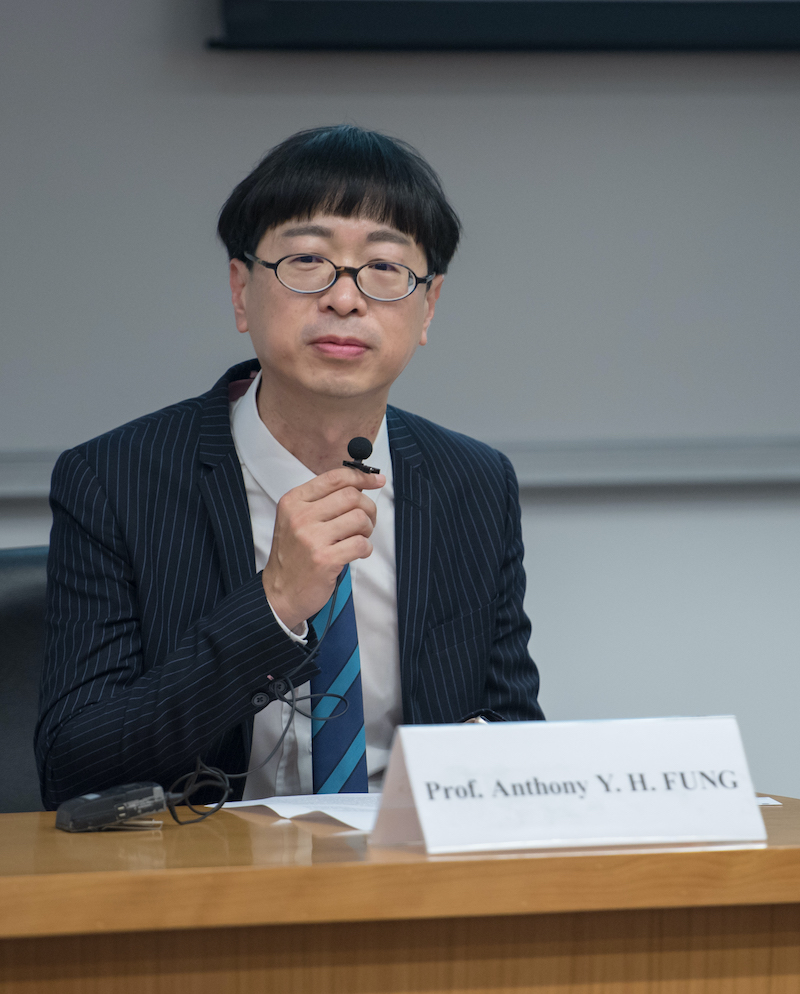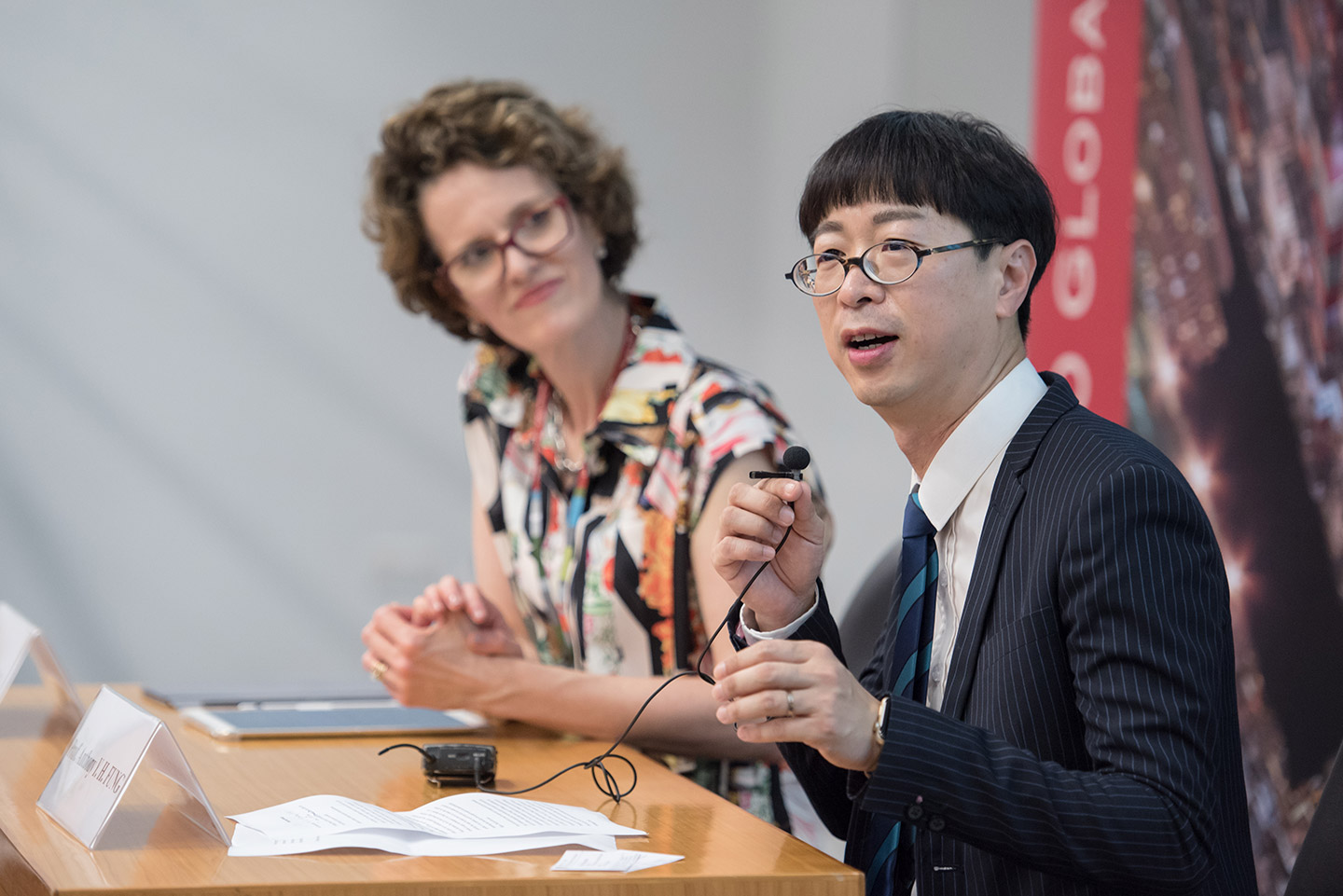An Interview with Buffett Visiting Professor Anthony Fung
Buffett Visiting Professor Anthony Fung is a Professor in the School of Journalism and Communication at the Chinese University of Hong Kong. He is also Director of the Global Studies Program and Co-Director of Hong Kong Institute of Asia Pacific Studies. His research interests focus on popular culture, cultural/creative industries and policy, and youth and cultural studies. He is editor-in-chief of Global Media and China, and associate editor of International Journal of Cultural Studies. His recent books include Youth Cultures in China (2016 under Polity Press), Global Game Industries and Cultural Policy (2016 under Palgrave Macmillan), and Culture as Logistics (forthcoming under SAGE). His talk in February, “Culture as Logistics: Infrastructure, Power, and China,” works to not only reconceptualize culture and power in our globalizing world but also to develop a new perspective to understand China and its power.
How would you describe your research?
My research is in the area of creative industries — entertainment platforms used every day, such as YouTube, Snapchat, Facebook, Netflix, Hulu, and so forth. My research focuses on these equivalent platforms in Asia, including Tencent, TikTok, and many others. I’m currently teaching a class comparing these platforms across the world. Beyond just research, I’m also working on internal projects within the platforms, so I consider myself part of the industry as well. Outside of work, I’m an independent director of a game company. What I do is not just a research interest, but also a hobby.
How did you get involved in this field?
I got my Master’s and PhD from the School of Communication in Minnesota, and one of my classes was called “Theories of Popular Culture.” Taking this class was the first time I realized that communications is not just defined by news and documentaries, but that in fact, there are a whole lot of topics we can study that are sometimes even bigger than news. After this, I started to realize that my hobbies and interests outside of work could be integrated into my research. Now, of course, it’s clear that that the news department is just one department within the media, and that the other parts, including entertainment, are much bigger.
How often do you consider international factors with what you do?
International factors, such as cultural differences, do help partially explain why some social media is more popular in certain parts of the world. However, they really only offer a simplified architecture. There are some universal mentalities that we can observe from people of the same age, so there must be some enduring factors that we as researchers can find out. For example, a lot of young people are on TikTok, and we are curious what motivates this behavior and how we can create a platform that addresses their needs. Beyond just helping businesses, I am hoping to improve social good with my research.

How do you approach the influence of politics on media and vice versa during your research?
Politics is the thing that I study least, to be honest. In the past, I’ve done some formal, serious news commentaries and programs on TV, but it was not the best fit for my interests. High politics are rarely a part of our regular day-to-day, and most people spend more time focusing on their communities, hobbies, and entertainment. I think this part of life is very important, which is why my research focuses on cultural studies within everyday life.
Some of your early comments demonstrate the plurality of perspectives you’ve had. For example, you are a Canadian but have worked extensively in the United States and Asia; you are a researcher who is also in industry. How do all those perspectives influence your work?
My writing and my research are a bit different from the norm. Most researchers and academics start from a theoretical concern, then look for research funding, go out into the field, collect data, etc. However, because I also consider myself a part of the industry, I work directly with people to solve a particular platform’s problems. After this step, I then develop more abstract theories. By flipping this process around, I have a much more practical perspective.
It seems that you don’t necessarily stick to traditional paths. How do you maintain your ability to remain authentic to your interests?
Initially, it was not that easy. Research is a full-time job, but throughout my entire career, I have never been just an academic. I also worked as a DJ and designed my own clothes. At first, every month I would try to design one or two things. At the same time, I would also go to my industry job.
Initially, these things were more separated, but now I’ve tried to integrate them. I’m working at a games company, but I’m also doing games research with my research center in Beijing. When I teach, I also include a part on gaming. I’ve slowly found that integration was a better solution. Most people have many faces, and having many faces is good and all the faces have a lot of potential. It’s just that people might always focus on one of them, or they don’t have time to develop the other part.
As an example: I like art a lot, and sometimes during the summer I go to Europe for a holiday. And when I see those paintings on the Italian churches, I remember Michelangelo was a painter, doctor, artist, architect, and philosopher. In the old days, no one was that divided in our daily life. We could have all sorts of knowledge. Now because of the institutionalization of knowledge, we say “Oh, we should be classified into certain areas, into certain people, and academics, they should focus on something.” This is good; there are benefits of specialization. But there are also limitations, and those limitations are that nowadays we always talk about lack of interdisciplines. In fact, there are many research questions that have to be asked and answered by different disciplines. But because of the current system, we cannot solve them, and people might not have a better life because the solutions have not been found.
In the [Chinese University of Hong Kong], I also lead a new program called Global Studies, which is an interdisciplinary program in which students learn economics, communication, politics, sustainability...so a bit of science, a bit of humanities, a bit of social science. And that might help new generations to solve future problems.

